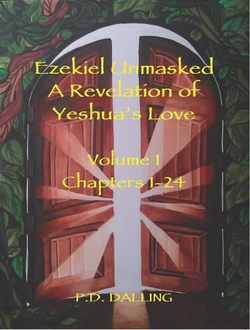Читать книгу Ezekiel Unmasked - A Revelation of Yeshua's Love (Chapters 1-24) - P.D. Dalling - Страница 42
На сайте Литреса книга снята с продажи.
Оглавление44
and shew unto you that eternal life, which was with the Father, and was manifested unto us;) that which we have seen and heard declare we unto you, that ye also may have fellowship with us: and truly our fellowship is with the Father, and with His Son Jesus Christ. All things exist by the Word of His power (Hebrews 1:3) and His Word is a revolving wheel. Have you ever wondered at the awe of God? All that He creates in the cosmos revolves on its axis.
Man hates the notion that there is an intelligent designer behind creation and for this reason he rebels and seeks to destroy anything and everything that is associated with God. Have you ever asked yourself the question, if someone does not believe that God exists, why is there so much tenacious fighting and lobbying to remove the evidence of something they do not believe? Man is earth and was created by God and this is the bottom line. The wheel within the wheel is therefore Yeshua Himself through eternal Holy Spirit working on behalf of mankind, reconciling us unto Abba Father. Yeshua is both the Living Word as well as the spoken Word of God and both are eternally One.
Ezekiel continues to describe the unity in purpose of these beings, “They turned not when they went.” This phrase is metaphorically speaking of the new man in Yeshua Jesus. The endless working of the Spirit of God in man washing his soul with the Word of God, thereby creating in him a clean heart and renewing a right spirit within him, not by force but by choice as he yields himself to his Maker. 2 Corinthians 4:7 speaks of Holy Spirit as a treasure in our bodies: But we have this treasure in earthen vessels, that the excellency of the power may be of God, and not of us. The new man in Yeshua is governed by the Spirit who resides in our spirit and this is the way God intended it to be.
Next, Ezekiel 1:18 describes the rings as being “full of eyes.” “Full” is the Hebrew Male pronounced maw-lay [4392], which speaks of one who is worthy and when mentioned along with “eye,” Ayin [5869]; we observe a
